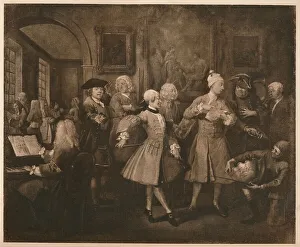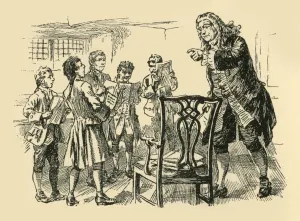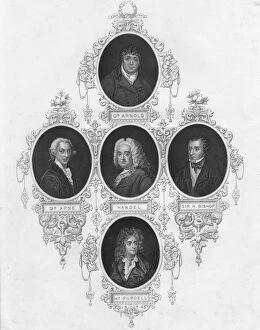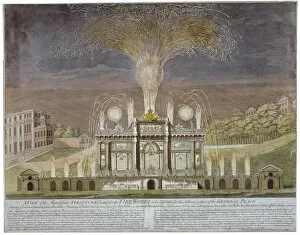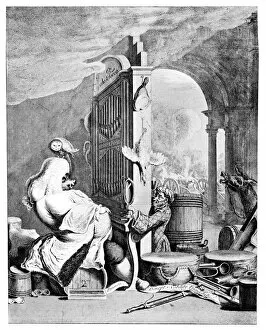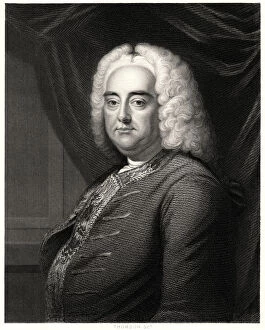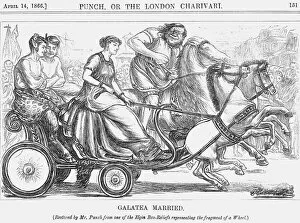George Frideric Collection
George Frideric Handel, a renowned composer and musician of the Baroque era, captivated audiences with his extraordinary talent
All Professionally Made to Order for Quick Shipping
George Frideric Handel, a renowned composer and musician of the Baroque era, captivated audiences with his extraordinary talent. In William Hogarth's painting "A Rake's Progress - 2: The Levee, " created in 1733, Handel is depicted as a prominent figure attending a social gathering. As he converses with others, one man questions his ability to sing at sight. Handel confidently replies that while he can indeed sing at first sight, it requires some effort. In another artwork from 1754, we see a caricature of Handel by an unknown artist. This satirical portrayal showcases his larger-than-life persona and musical genius. The strokes of his hammer on the anvil in yet another image from 1907 symbolize how even mundane tasks were transformed into rhythmic melodies under Handel's influence. Handel's performances were so captivating that they could incite duels among admirers who wished to defend their favorite compositions passionately. Such was the impact of his music that even royalty praised him for his exceptional talents. During one carriage ride captured in an illustration from 1907, Handel calls out to the coachman to stop abruptly upon encountering something inspiring or intriguing along the way. His magnetic presence beckons those around him silently to follow suit and explore new artistic possibilities. Various portraits throughout history depict different aspects of Handel's life and career; each capturing a unique essence of this influential composer. Whether it be Hoare's depiction in c1740 or an unidentified artist's rendition from mid-18th century or even earlier works like the one dating back to 1785 – all showcase different facets of this musical maestro. George Frideric Handel left behind a rich legacy through his timeless compositions such as "Messiah" and "Water Music. " His ability to create enchanting melodies continues to inspire musicians and listeners alike centuries after his passing in 1759.

